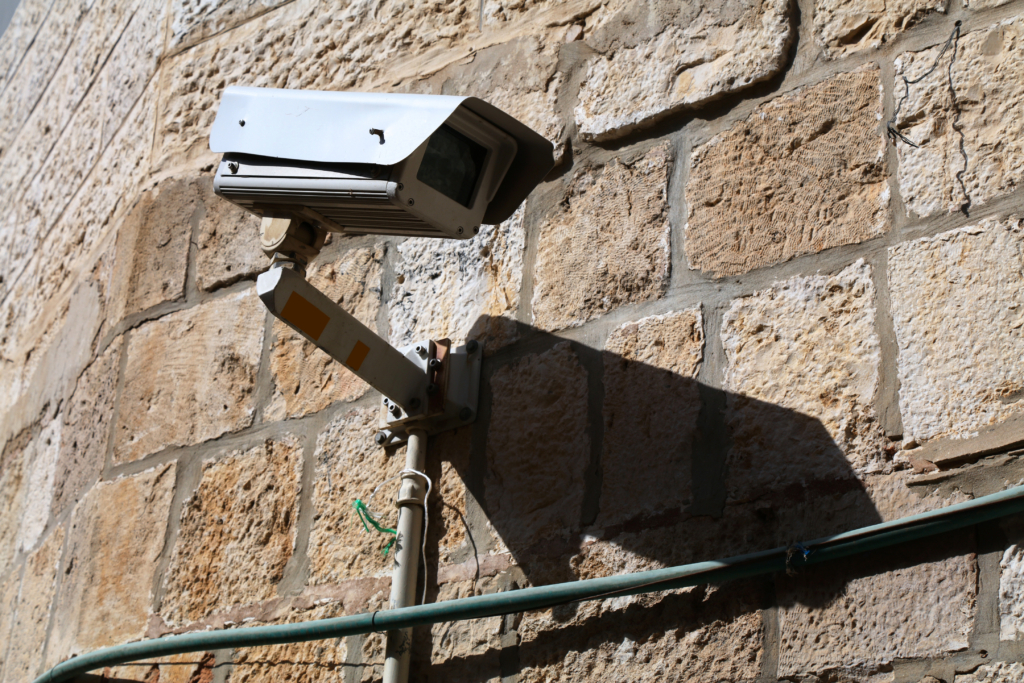Amnesty International welcomes the call by a major investor in a Dutch manufacturer of cameras deployed in occupied East Jerusalem for human rights safeguards to be applied.
ASN Impact Investors said it would lose its investment if TKH Group did not adopt a human rights due diligence policy within a year.
This sets the right precedent to hold investors accountable for the actions of the beneficiaries of their investment.
The move comes just over a year after Amnesty International released its Occupied Palestinian Territories report, “Automated Apartheid: How Facial Recognition is Dividing, Segregating and Controlling Palestinians,” which documented how Israel’s vast network of facial recognition-enabled cameras is violating the human rights of Palestinians in the occupied West Bank and perpetuating Israel’s apartheid system.
“Investors are providing the terms and resources for companies like TKH Security, a subsidiary of TKH Group, to develop and sell AI-powered surveillance technology. Their vigilance is particularly important where the risk of human rights abuses is growing,” said Matt Mahmudi, interim director of Amnesty International’s Silicon Valley Initiative and a researcher on AI and human rights.
“This is especially urgent as Israel uses its surveillance regime to intensify its crackdown on freedom of movement, association and peaceful assembly. The supply of hardware and software that can be used to enforce Israel’s crimes against humanity, apartheid, and other human rights violations against Palestinians must not be tolerated under any circumstances.”
Responding to Amnesty International about the findings of the automated apartheid report, the investor said in its correspondence with Amnesty: “ASN Impact Investors has decided to proactively engage with TKH Group to put in place appropriate due diligence policies to prevent such transactions from taking place in the future. This means that TKH Group has one year to meet ASN Impact Investors’ demands, otherwise the investment will be terminated. This is the most powerful tool in ASN Impact Investors’ toolbox.”
This decision is also reflected in ASN Impact Investors’ 2023 Annual Report and its Semi-Annual Investment Report for the second half of 2023.
Amnesty’s “Automated Apartheid” report revealed the use of cameras manufactured by TKH Group in occupied East Jerusalem, likely part of the Mabat 2000 networked facial recognition system. Introduced in 2000 and significantly upgraded since 2017 to integrate facial recognition capabilities, the system gives Israeli authorities unprecedented powers of control and surveillance over the daily lives of Palestinians in East Jerusalem, facilitating arbitrary restrictions on freedom of movement, expression, association and peaceful assembly.
Amnesty International found that there are one to two surveillance cameras installed every five metres throughout Jerusalem’s Old City and Sheikh Jarrah neighbourhoods, creating an atmosphere of fear, insecurity and oppression among Palestinians and further strengthening Israel’s apartheid system.
Particularly in East Jerusalem, the increased use of facial recognition technology (FRT) in tandem with Israeli attempts to forcibly expel Palestinians from strategic areas has had a chilling effect on Palestinians’ ability to organize in public. FRT technology is used by Israeli authorities to monitor and restrict the movement of Palestinians living in the Occupied Palestinian Territory and to expel Palestinians from areas of strategic importance to Israeli authorities and illegal settlers. These mass and discriminatory surveillance systems violate the rights to privacy, equality, non-discrimination and freedom of movement.
In April 2021, Amnesty International identified several TKH CCTV products installed in infrastructure operated by the Israeli Police in occupied East Jerusalem. To date, TKH has not responded to Amnesty’s questions about the nature of TKH Security-owned products used by Israeli security forces, any indirect relationships, its human rights due diligence procedures, or whether it has made or intends to make a public commitment not to develop or sell facial recognition products.
Given this lack of clarity and the ongoing struggle to strengthen human rights due diligence, the ASN’s decision is an important one in ensuring corporate accountability.
Business investors have a responsibility to take proactive and ongoing steps to identify and address potential or actual human rights impacts of artificial intelligence. This includes performing sophisticated human rights due diligence to identify, prevent and mitigate human rights impacts and account for how they address them. Investors and monitoring providers should not engage in the development or sale of FRT and should immediately cease exports to Israeli authorities for use against Palestinians.
Amnesty International is also calling for a global ban on the development, sale, export and surveillance use of FRT.
background
Amnesty International released the “Automated Apartheid” report in May 2023. The report highlighted how Israel uses coordinated surveillance networks such as Red Wolf and Mabat 2000 to track Palestinians and automate severe restrictions on their freedom of movement, helping to maintain the apartheid system.
On October 7, 2023, Hamas and other Palestinian armed groups launched an attack in southern Israel, killing at least 1,140 people, including 36 children, and approximately 245 people taken hostage or prisoner. In response, Israel launched a devastating military offensive that has left at least 37,000 people dead in the Gaza Strip, most of them civilians, causing unprecedented destruction and forced displacement. Meanwhile, in the occupied West Bank, approximately 20 Palestinian communities have been displaced as a result of violence perpetrated by state-sponsored settlers.



